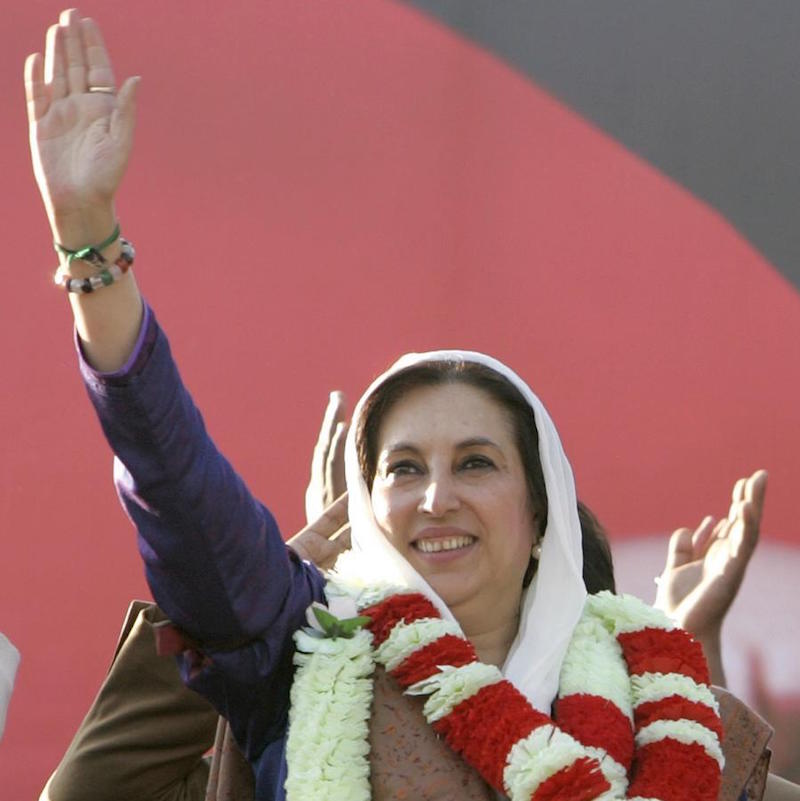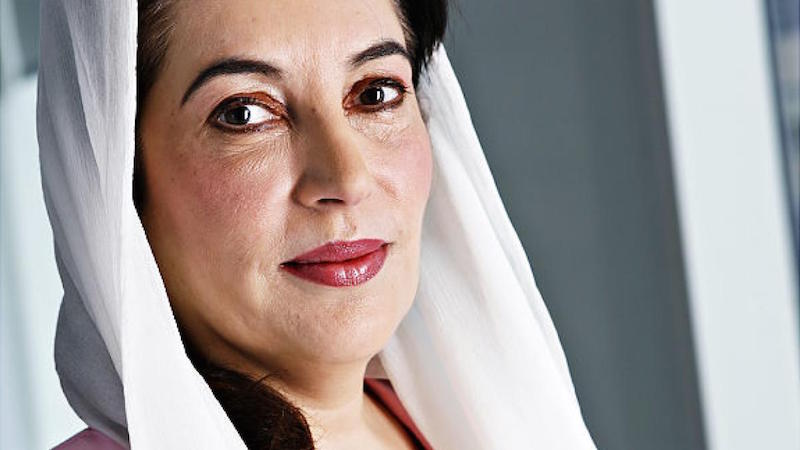Benazir Bhutto
Episode #10 of the course “Incredible female leaders through history”
Born in 1953 and assassinated in 2007, Benazir Bhutto was Pakistan’s 11th prime minister and the only woman to serve that position in the nation’s history. Her father, Zulfikar Ali Bhutto, had been prime minister and introduced her to politics before he was assassinated. Benazir Bhutto was known for bringing capitalistic economics to Pakistan; she was also a herald of domestic security. Corruption scandals led to her exile in 1999, and perhaps to her death upon her return to Pakistan in 2007. She was a leading candidate in the 2008 general election.
After a rural and liberal upbringing, Bhutto graduated with a BA from Harvard University in 1973 and another from Oxford University in 1977. She studied law, politics, and philosophy and returned to Pakistan in 1977 while her father was serving as prime minister. Soon after, her father was overthrown, and the Bhutto family was imprisoned over the following years, with intermittent periods of release. Bhutto wrote about the terrible conditions of her confinement, including being kept in an enclosed, insect-infested room without ventilation. She was often in fear for her life.

After her permanent release, she became the first woman chair of a Pakistani political party in 1984. But it wasn’t until 1988 that she wielded influence as prime minister. She maintained diplomatic relations with President George HW Bush—essential during the final years of the Cold War. Bhutto promoted scientific research for government and military purposes and reportedly authorized covert operations to advance Pakistan’s nuclear program.
Bhutto set an example for all women as the first Pakistani politician to give birth while in office. She served as a leader in Parliament twice, for a total of six years, in addition to her two terms as prime minister. Her controversial policies included friendly relations with North Korea throughout the 1990s and her promotion of women’s empowerment in Pakistan. Her charges of corruption and her subsequent assassination also remain controversial.
Quotes
“To make peace, one must be an uncompromising leader. To make peace, one must also embody compromise.”
“Leadership is to do what is right by educating and inspiring an electorate, empathizing with the moods, needs, wants, and aspirations of humanity.”
“I was brought up to believe that human beings are good, which is why it shocks me to the core when I see human beings behaving badly.”
“Whatever my aims and agendas were, I never asked for power.”
Share with friends

